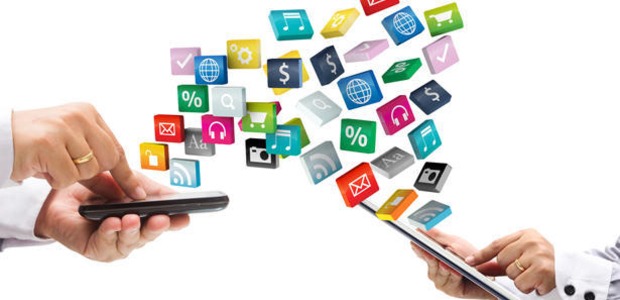advertisement
Gartner: Mobile app strategies will be transformed by cognizant computing
Cognizant computing — the next phase of the personal cloud movement — will become one of the strongest forces in…

Cognizant computing — the next phase of the personal cloud movement — will become one of the strongest forces in consumer-focused IT, according to Gartner. It will have an immense impact across a range of industries, including mobile devices, mobile apps, wearables, networking, services and cloud providers, causing major shifts in revenue and profit flows.
“Cognizant computing is transforming personal clouds into highly intelligent collections of mobile apps and services,” said Jessica Ekholm, research director at Gartner. “Business-to-consumer providers must adapt their strategies to exploit this change to generate new revenue, find new ways to differentiate themselves and foster loyalty via mobile apps.”
Cognizant computing is a consumer experience, in which data associated with individuals is used to develop services and activities according to simple rules. These services include alarms, bill payments, managing and monitoring health and fitness, and context-specific ads. Cognizant systems will deliver their services across multiple devices.
advertisement
The practical application of cognizant computing helps business-to-consumer (B2C) companies to acquire deep insights into consumers’ preferences and daily lives, which will therefore assist in creating better, more-personalized tailor-made services and offers, as well as ameliorate customer services. This, in turn, should help providers strengthen their competitiveness (and responsiveness) in a market where consumers are becoming increasingly aware of new services and offers, pricing structures, and the reputation of a brand.
Gartner predicts that cognizant computing will put the importance of apps, services and cloud to the forefront — making it one of the three most important components for any customer retention strategies for B2C companies over the coming five years.
“Cognizant computing is already beginning to take shape via many mobile apps, smartphones and wearable devices that collect and sync information about users, their whereabouts and their social graph,” said Ms. Ekholm. “Over the next two to five years, the Internet of Things and big data will converge with analytics. Hence, more data will make systems smarter.”
advertisement
As a result, Ms. Ekholm said that by 2017, smartphones are expected to manage some tasks for us — probably better than we can do them ourselves. More-onerous administration tasks, such as booking our car in for service, changing a hotel booking if our plane is canceled, or sending information to our doctor about refilling our repeat prescriptions, are a few examples. Once this point has arrived, apps and services that are hosted in the personal cloud will interact with smartphones and other devices and the intricate app ecosystems they have created.
Any company in the business of providing a service, using apps or selling devices will be affected by cognizant computing in some way. Cognizant computing will allow companies to better connect with customers and to create more valuable products, services and offers.
“The increased awareness of and implementation of analytics and self-learning systems will force B2C companies to hasten their adoption of these technologies, to stay competitive and better serve the consumer of the future,” said Ms. Ekholm. “Analytics is the key component and creates the backbone of cognizant computing.”
advertisement
By amalgamating and analyzing data in the cloud from many sources (including apps, smartphones and wearable devices, websites, store purchases, and social interaction), cognizant computing will provide contextual insights. This will help companies expand the lifetime value of their increasingly fickle customers, improve customer care, boost their sales channels and transform the customer relationship — by making it more personal and relevant. In essence, this new development will help companies to innovate and create new business opportunities by creating hypercontextual services that will appeal to a dedicated individual — rather than catering to the mass market. However, critical issues will have to be addressed including consumer privacy, quality of execution and becoming a trusted vendor.
As consumers move their attention and money toward apps and services, B2C device vendors will be forced to forge partnerships with apps and service providers and create increasingly innovative business models that meet consumers’ needs by providing integrated services and apps to drive hardware sales.
“Consumer device manufacturers are placed in a formidable scenario of trying to compete with service and apps providers while keeping their brand fresh and exciting for end users,” said Ms. Ekholm. “The more obvious answer would be for them to start offering apps and services — which many have done over the years, with varying degrees of success,. However, their best tactic would be to partner with app and service providers, in order to have a better chance of succeeding in this space.”
More detailed analysis is available in the report “Mobile Applications Strategies Will Be Transformed by Cognizant Computing.” The report is available on Gartner’s website.